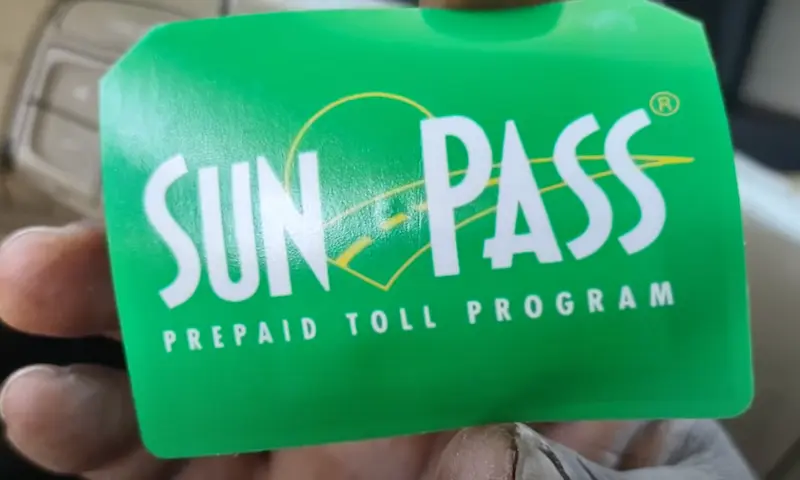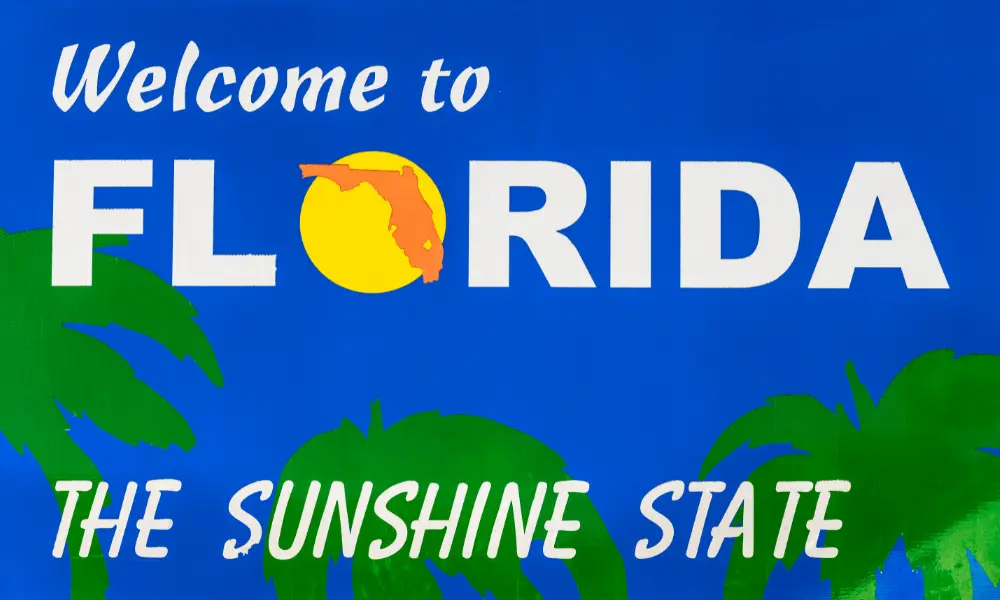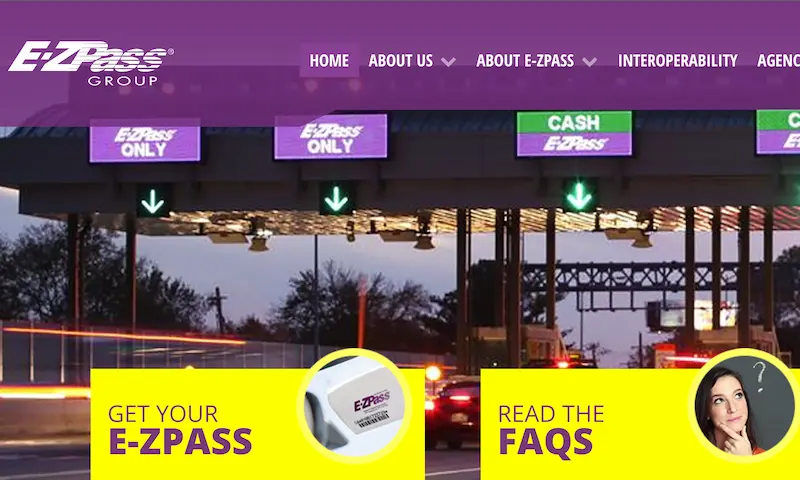Have you received a text claiming to be from SunPass about unpaid tolls? You’re not alone. Thousands of Americans are being targeted by these sophisticated scams daily—even people who’ve never used Florida’s toll systems. These fraudulent messages try to scare you into clicking suspicious links that steal your personal and financial information. I’ll help you recognize these scams and show you exactly what to do if you receive one.
What Is the SunPass Text Message Scam?
The SunPass text message scam is a sophisticated form of digital fraud where criminals send mass text messages pretending to be from Florida’s SunPass toll collection system. These texts claim you have unpaid tolls that need immediate attention, creating artificial urgency to manipulate you into making hasty decisions.
This scam is technically called “smishing” – a combination of SMS and phishing – where cybercriminals use text messages instead of emails to steal your information. What makes these attacks particularly troubling is their international origin. A SunPass supervisor revealed these messages often come from countries as far away as Australia and India, making them exceptionally difficult to track or block.
The scam follows a predictable pattern:
- You receive a text claiming to be from SunPass about unpaid tolls
- The message contains a link you’re urged to click immediately
- Clicking takes you to a convincing but fake website mimicking SunPass
- The site asks for sensitive information like credit card details and personal data
Even if only a tiny percentage of recipients fall for the scam, it’s still profitable for criminals. As University of South Florida criminology associate professor Thomas Hyslip explains, when hundreds of thousands of messages are sent, even a 1% success rate represents a significant haul for scammers.
How to Spot Fake SunPass Text Messages
Recognizing fraudulent SunPass messages isn’t difficult once you know the warning signs. Here are the key indicators that a text is fake:
Communication Method
The single most important fact to remember: SunPass does not send toll invoices via text message or email. They only send official toll invoices through traditional U.S. mail. This simple rule makes identifying scams straightforward – any text requesting toll payment is automatically suspicious.
Message Content
Fraudulent texts often contain:
- Grammatical errors or awkward phrasing
- Unusual capitalization (like “Pay it IN time”)
- Vague claims about tolls without specific details
- High-pressure language creating artificial urgency
Sender Information
Legitimate SunPass communications only come from specific sources:
- Text messages: only from the number 786727
- Emails: only from [email protected] or [email protected]
Scam messages typically use random phone numbers and contain suspicious links with:
- Strange domain names (like “datingcharm-web.de”)
- Random characters after “.com” (like “-hd6q”)
- Unrelated website names that clearly aren’t official
Targeting Logic
Perhaps the most obvious red flag is receiving SunPass texts when you have no logical connection to the service:
- You’ve never visited Florida
- You don’t use toll roads
- You don’t own a vehicle
- You live in a state far from Florida
One Reddit user reported receiving a SunPass notification despite living in Ohio for years, while another mentioned getting the scam text despite not even owning a car.

How SunPass Actually Communicates With Customers
Understanding SunPass’s legitimate communication practices is your best defense against scams. Here’s how SunPass actually contacts customers:
Official Communication Channels
- Toll invoices: Sent exclusively through U.S. mail, never by text or email
- Text messages: If legitimate (for account updates, not payments), only come from 786727
- Emails: Only sent from [email protected] or [email protected]
- Official website: SunPass.com (TollByPlate.com redirects here)
SunPass spokesperson Yasir Mercado has confirmed that customer service remains their highest priority, and they actively work to alert customers about scams. They’ve implemented warning messages on their social media accounts and call center lines to educate users about these threats.
If you’re ever uncertain about a communication claiming to be from SunPass, they encourage you to contact their customer service directly through official channels rather than responding to the message in question.
What To Do If You Receive a Suspicious SunPass Text
Received a text claiming to be from SunPass? Here’s exactly what you should do:
Immediate Actions
- Don’t click any links in the message
- Don’t reply to the text
- Don’t call any phone numbers provided
Verification Steps
If you’re concerned about potential unpaid tolls:
- Access your SunPass account directly by typing SunPass.com into your browser
- Use the official SunPass mobile app
- Call SunPass customer service using the number from their official website
This practice of independently verifying claims applies to any unexpected message claiming to be from a financial institution or service provider.
Reporting the Scam
After ensuring you haven’t engaged with the scammer:
- Report the message to the FBI’s Internet Crime Complaint Center at IC3.gov
- Report the text as spam through your phone’s built-in reporting feature
- Block the number that sent the message
Cybersecurity expert Thomas Hyslip warns against answering calls or responding to texts from unknown sources, as this confirms your number is active and may lead to increased targeting. Complete non-engagement is your safest approach.
What To Do If You’ve Already Fallen for the Scam
Despite best precautions, anyone can become a victim, especially when messages arrive during moments of distraction or fatigue. If you’ve already interacted with a SunPass text scam, take these immediate steps:
Financial Protection Steps
- Cancel any credit cards whose information you entered on the fraudulent website
- Contact your card issuer to explain the situation
- Request a replacement card with a new number
- Monitor your statements closely for unauthorized charges
Identity Protection Measures
If you provided personal information (name, address, driver’s license number, etc.):
- Monitor your credit reports through all three major bureaus
- Consider placing a credit freeze or fraud alert on your credit files
- Change passwords for any accounts that share credentials with compromised information
Reporting to Authorities
- File a report with the FBI’s Internet Crime Complaint Center (IC3.gov)
- Contact your state’s consumer protection office
- Report identity theft concerns to the Federal Trade Commission at IdentityTheft.gov
- Contact your state’s Department of Motor Vehicles if you shared your driver’s license information
While a driver’s license number alone doesn’t provide complete access to financial accounts, when combined with other personal details, it can facilitate identity theft. Taking proactive measures can help minimize potential damage.
Why These Scams Are So Widespread and Effective
The SunPass text message scam isn’t just a Florida problem—it’s targeting individuals nationwide. What makes this scam campaign particularly concerning is its:
Geographic Reach
These scams target people regardless of location or SunPass usage history. A SunPass supervisor confirmed this issue affects tolling agencies across many states, indicating a coordinated, large-scale operation. Scammers are using massive databases of phone numbers rather than targeting specific SunPass customers.
Cyclical Nature
These scams follow predictable patterns. After a period of high activity generates public awareness, the scammers temporarily withdraw, waiting for vigilance to subside before launching renewed campaigns. This explains why many users report periodic surges in these fraudulent messages.
The current wave appears particularly aggressive, with numerous people reporting daily receipt of these scam texts. This suggests scammers are intensifying their efforts, perhaps adapting to increased public awareness by simply expanding their target audience.
Technical Sophistication
These operations present significant challenges for prevention because:
- Scammers operate internationally, beyond U.S. law enforcement jurisdiction
- They use randomly generated phone numbers, making blocking ineffective
- Mass text messaging is simple and inexpensive to deploy
While no confirmed SunPass data breach has been reported, the widespread distribution suggests scammers are utilizing comprehensive phone number databases purchased on the dark web or obtained through other means.
Protecting Yourself from All “Smishing” Attempts
The tactics used in SunPass text scams apply to many other text-based scams. Here are broader strategies to protect yourself from all types of smishing attempts:
Develop Healthy Skepticism
- Treat all unexpected payment requests via text with suspicion
- Remember that legitimate organizations rarely request immediate payment via text
- Be particularly wary of messages creating artificial urgency
Follow Verification Best Practices
- Never click links in unexpected texts about accounts or payments
- Always access accounts directly through official websites or apps
- Call official customer service numbers listed on your account statements or cards
- Contact companies through their verified social media accounts if uncertain
Strengthen Your Digital Security
- Keep your phone’s operating system and apps updated
- Consider using spam-filtering apps for additional protection
- Use two-factor authentication for important accounts
- Create unique, strong passwords for each online account
Stay Informed
- Follow legitimate companies on social media to learn about current scams
- Check consumer protection websites regularly for scam alerts
- Discuss scam awareness with friends and family, especially those who might be vulnerable
Remember that digital scammers continuously evolve their tactics. The basic principle remains consistent: independently verify claims through official channels rather than responding directly to unexpected messages.
Latest SunPass Scam Variations to Watch For
Scammers are constantly updating their tactics. Here are some recent variations of the SunPass scam to be aware of:
Multi-Channel Approaches
Some scammers now follow up text messages with phone calls from spoofed numbers appearing to be from SunPass, adding an extra layer of perceived legitimacy. Remember that even if caller ID shows “SunPass,” it could still be spoofed.
Personalized Messages
More sophisticated scams now include partial personal information (like your name or general location) to seem more convincing. Don’t be fooled—scammers can obtain this basic information from data breaches or public records.
QR Code Variants
Instead of traditional links, some scam texts now include QR codes that lead to fraudulent websites. Treat unexpected QR codes with the same caution as suspicious links.
Official-Looking Websites
The fake payment portals have become increasingly sophisticated, with professional designs, official logos, and realistic URL structures. Some even include CAPTCHA verification and other features of legitimate sites to appear more credible.
The Florida Attorney General’s Office has already taken action against several fraudulent SunPass websites, but new ones continue to emerge. Always verify you’re on the genuine SunPass.com before entering any information.
Reporting SunPass Text Message Scams
Reporting these scams helps authorities track and combat them while protecting others. Here’s where and how to report:
Where to Report
- Federal Bureau of Investigation: Submit reports through IC3.gov
- Federal Trade Commission: Report at ReportFraud.ftc.gov
- Florida Attorney General’s Office: Report at MyFloridaLegal.com
- Mobile carriers: Forward spam texts to 7726 (SPAM)
- SunPass directly: Report suspicious communications to [email protected]
What Information to Include
When reporting, try to provide:
- The phone number that sent the text
- The exact message content
- Screenshots of the text and any websites it linked to
- Date and time you received the message
- Whether you interacted with the message and what information may have been compromised
Every report helps build patterns that authorities can use to pursue these scammers and warn the public about emerging threats.
Building Overall Digital Resilience
Beyond specific scams like the SunPass text messages, developing broader digital resilience is essential in today’s connected world:
Adopt a “Verify First” Mindset
- Pause before responding to unexpected messages
- Independently verify claims through official channels
- Remember that legitimate organizations don’t mind verification
Recognize Emotional Manipulation
Scammers rely on triggering emotional responses like:
- Fear (“Your account will be suspended”)
- Urgency (“Act within 24 hours”)
- Excitement (“You’ve won a prize”)
- Trust (“This is an official message”)
Learning to recognize these emotional triggers helps you respond rationally rather than reactively.
Share Knowledge
- Discuss scams with family members, especially older adults who may be targeted
- Report scam attempts to relevant authorities
- Correct misinformation when you see others sharing potential scams
By understanding the tactics of digital scammers and maintaining healthy skepticism toward unexpected messages, you can protect yourself not only from SunPass text scams but from the constantly evolving landscape of digital threats.
The most important takeaway: SunPass never requests payments via text message. Any text claiming to be from SunPass and asking for payment is automatically suspicious and should be ignored. When in doubt, contact SunPass directly through their official website or customer service number.
















